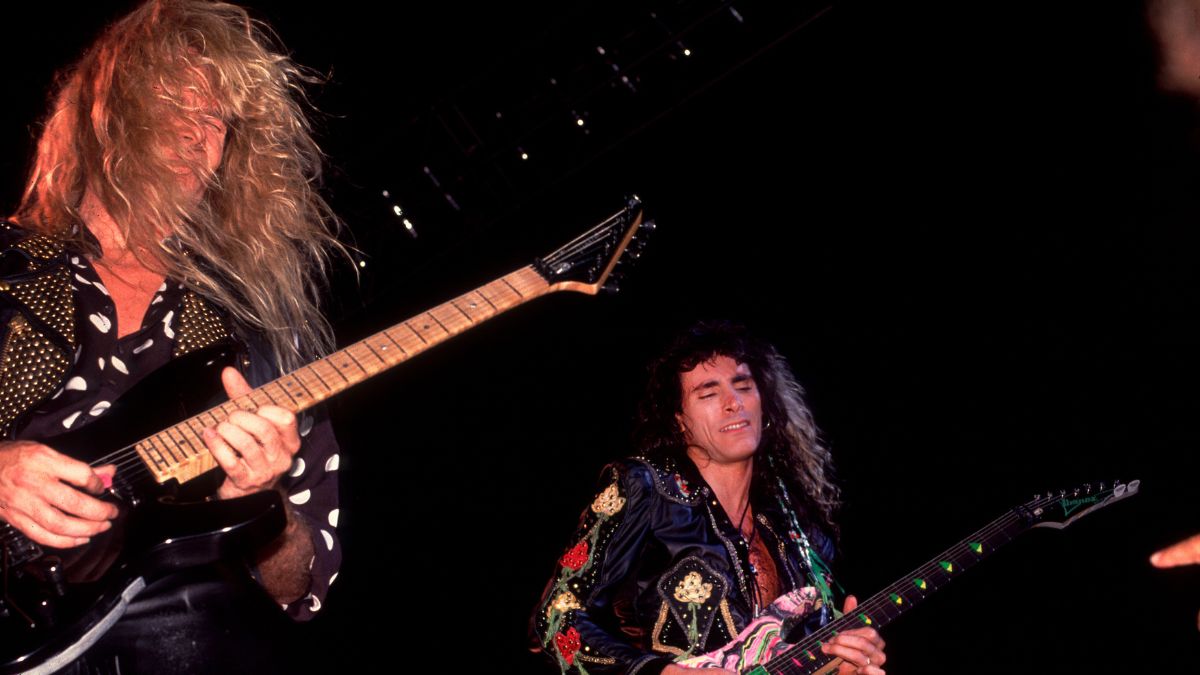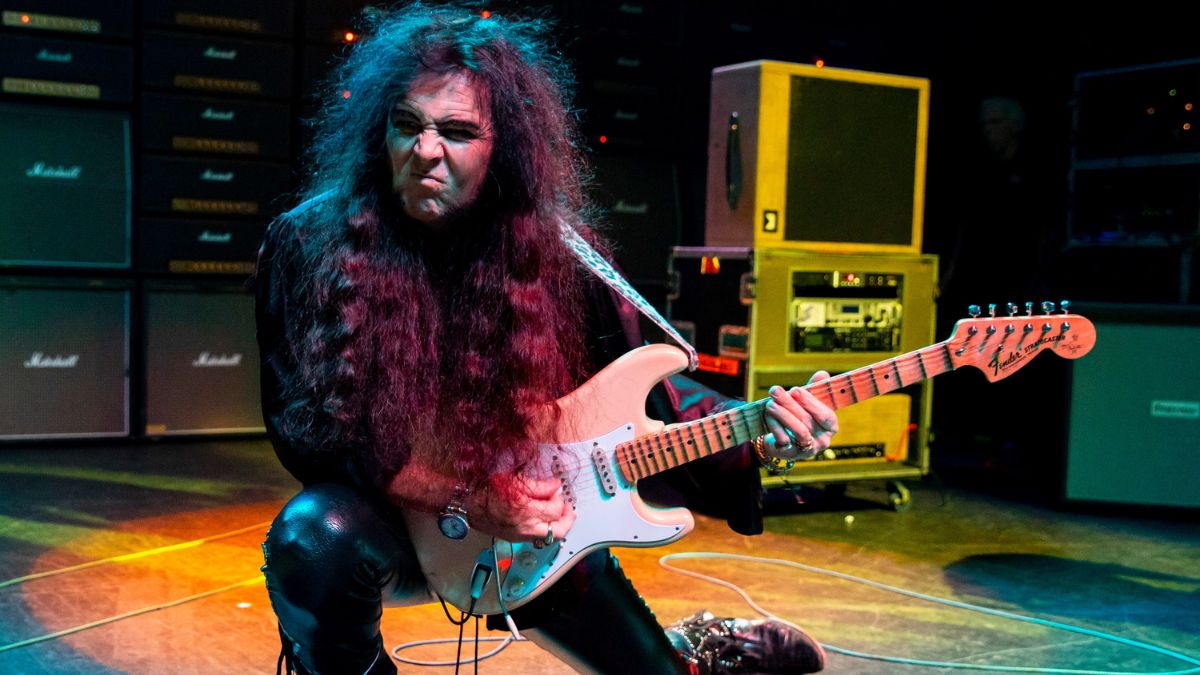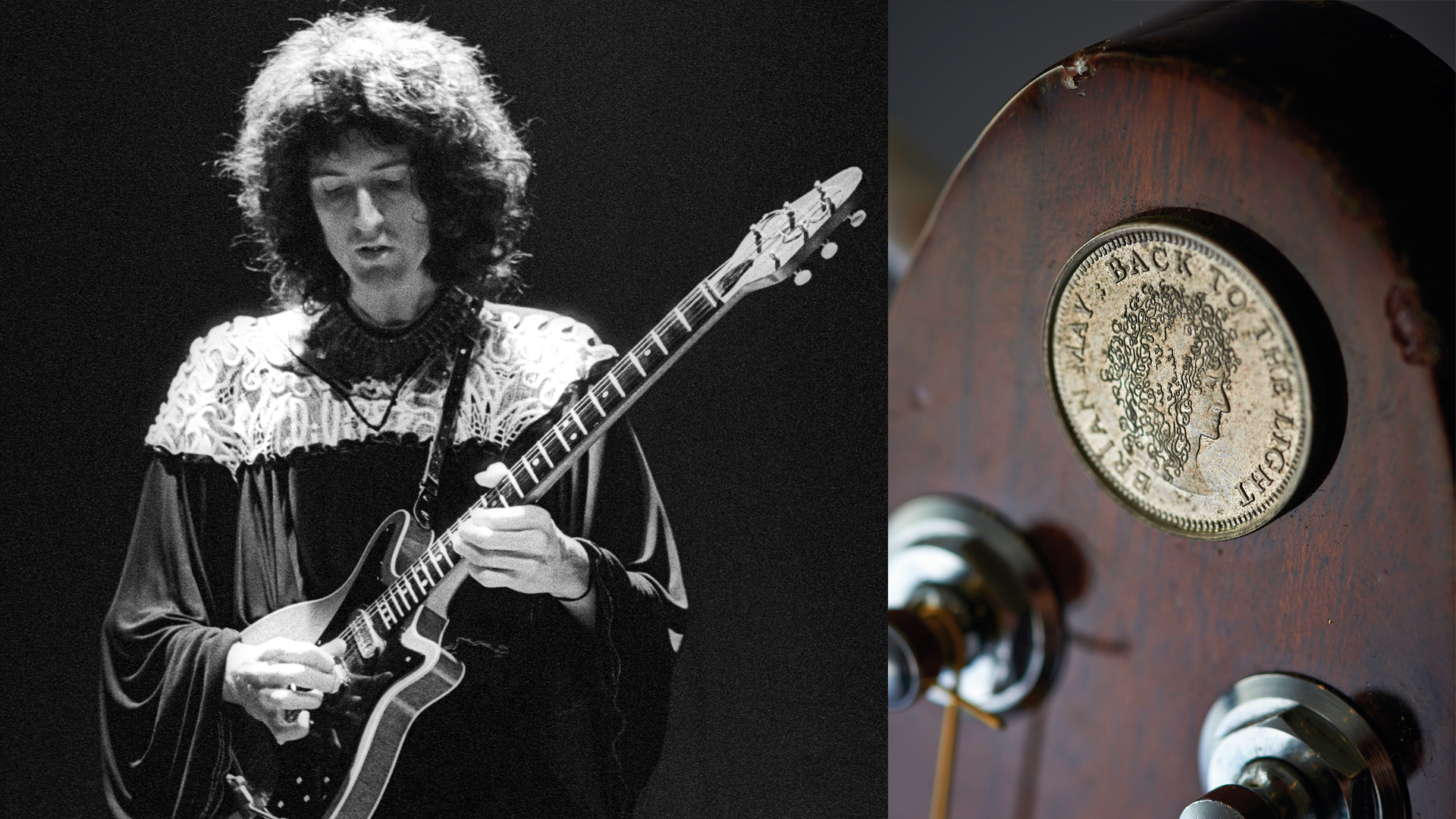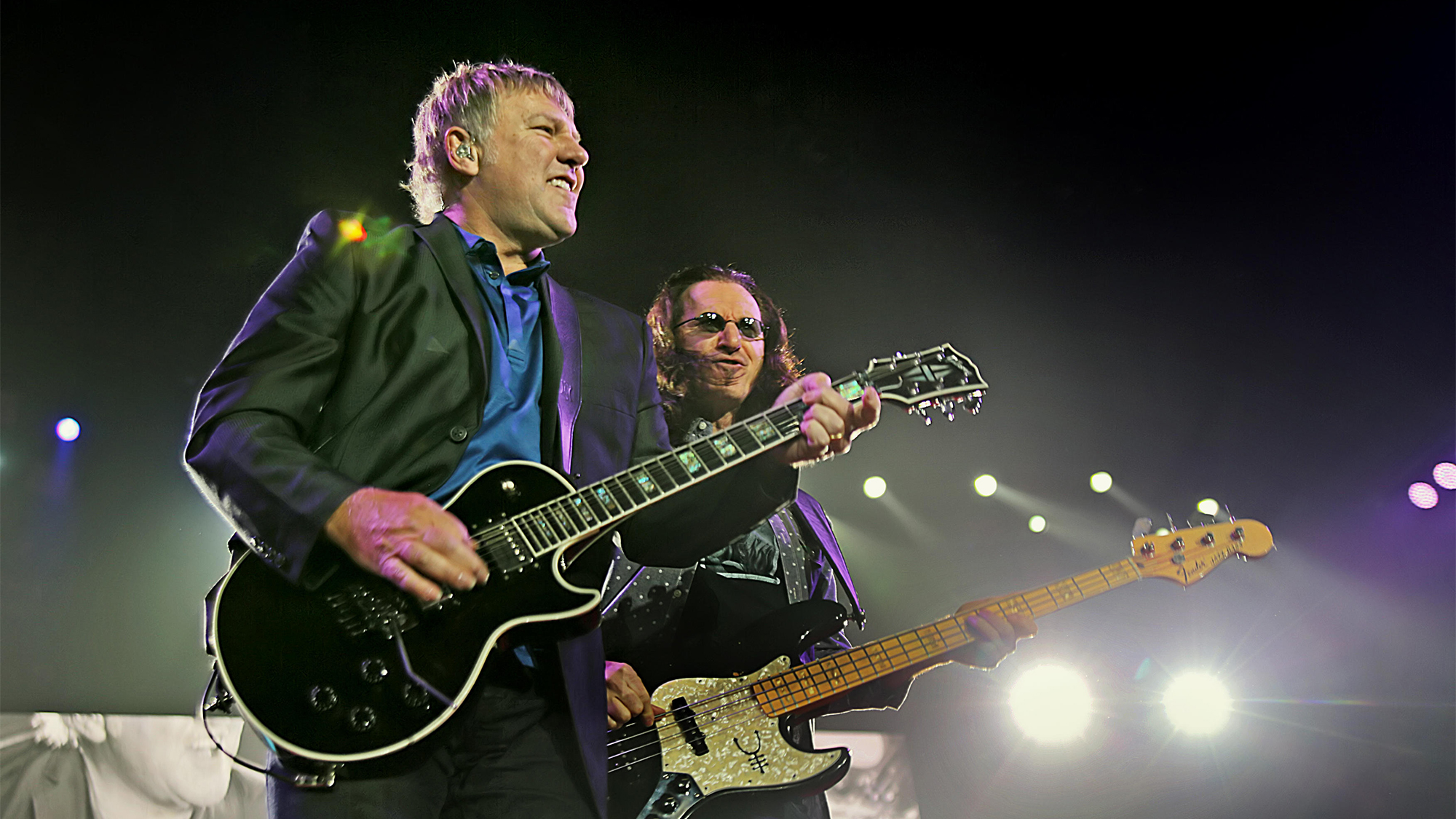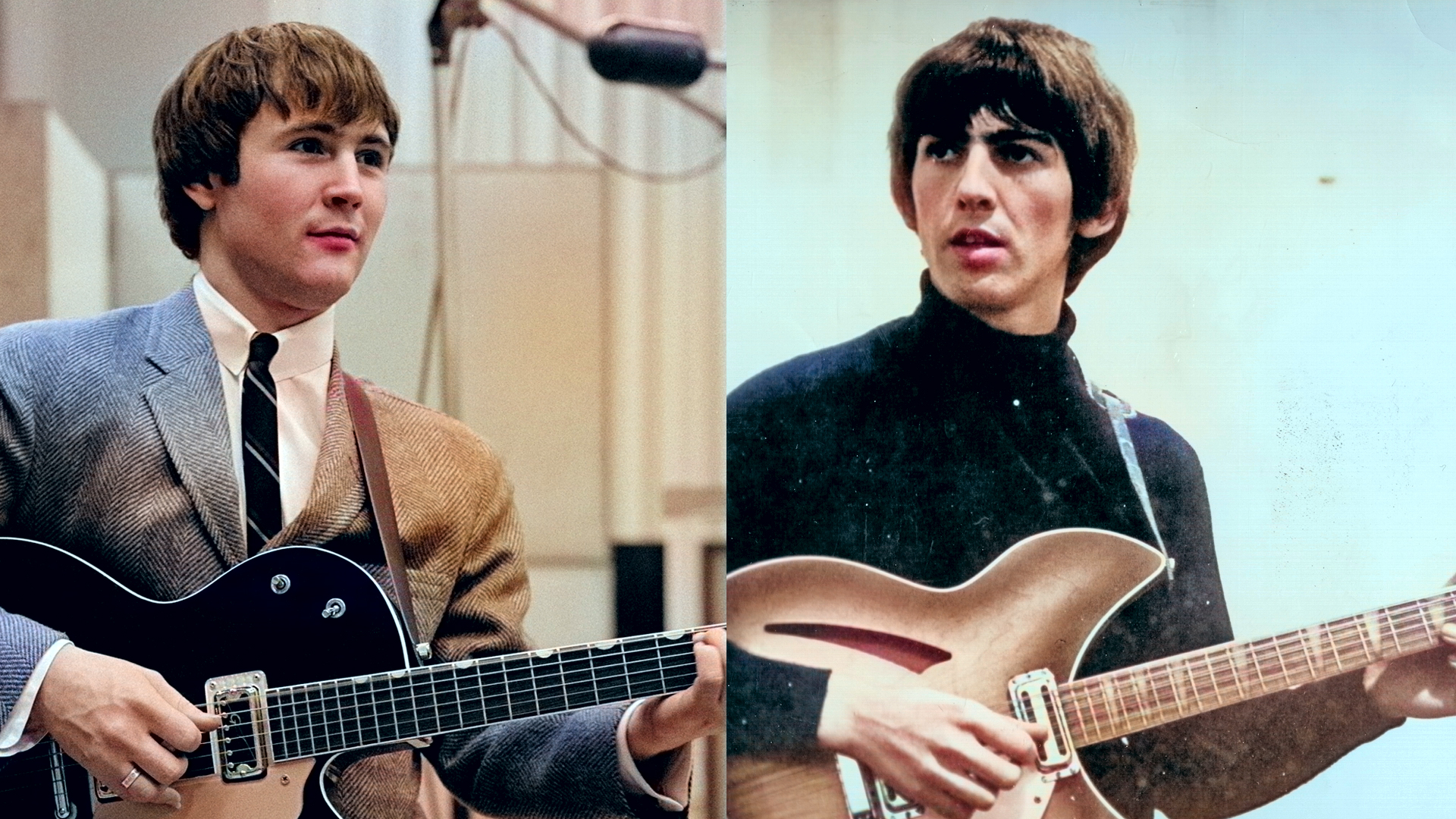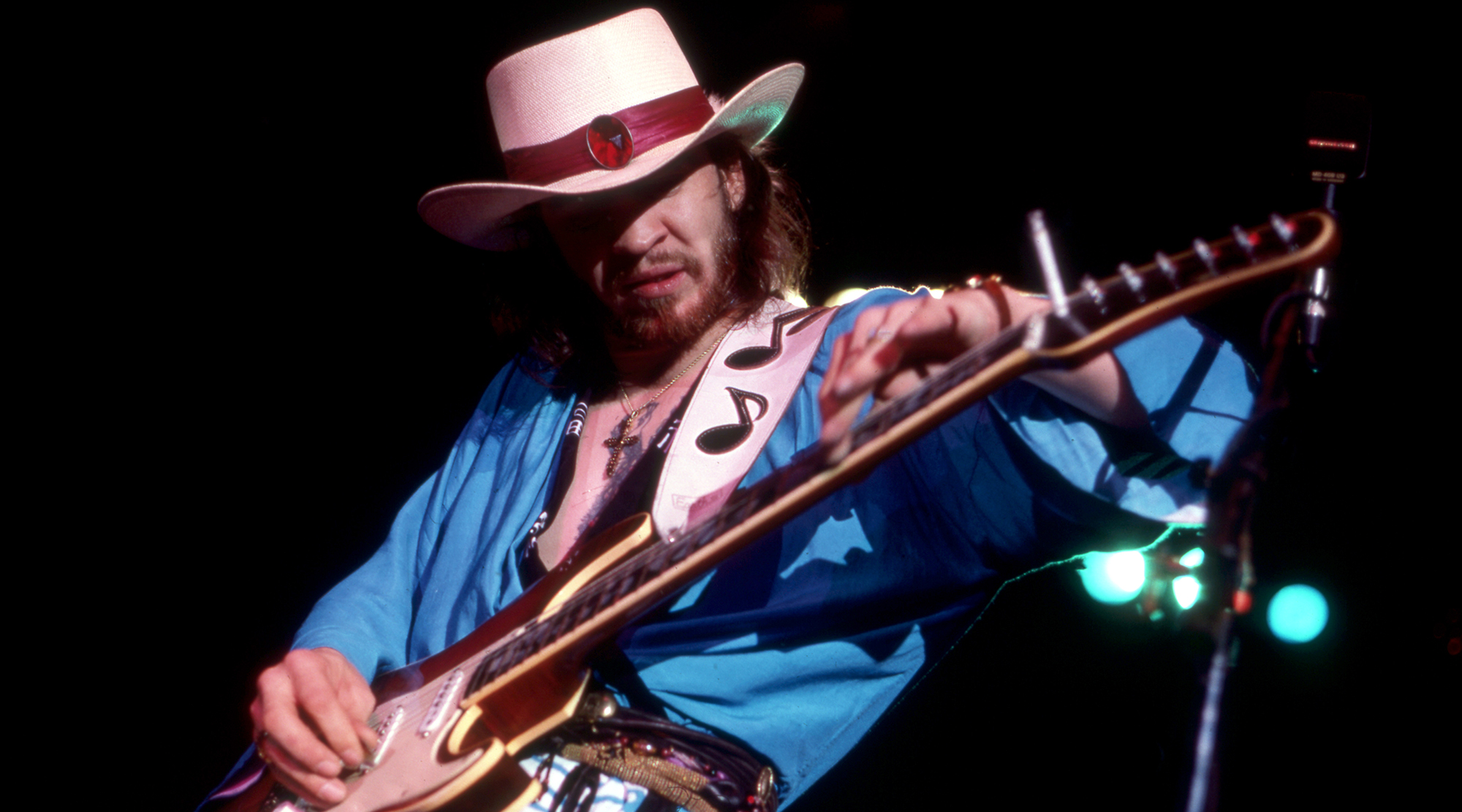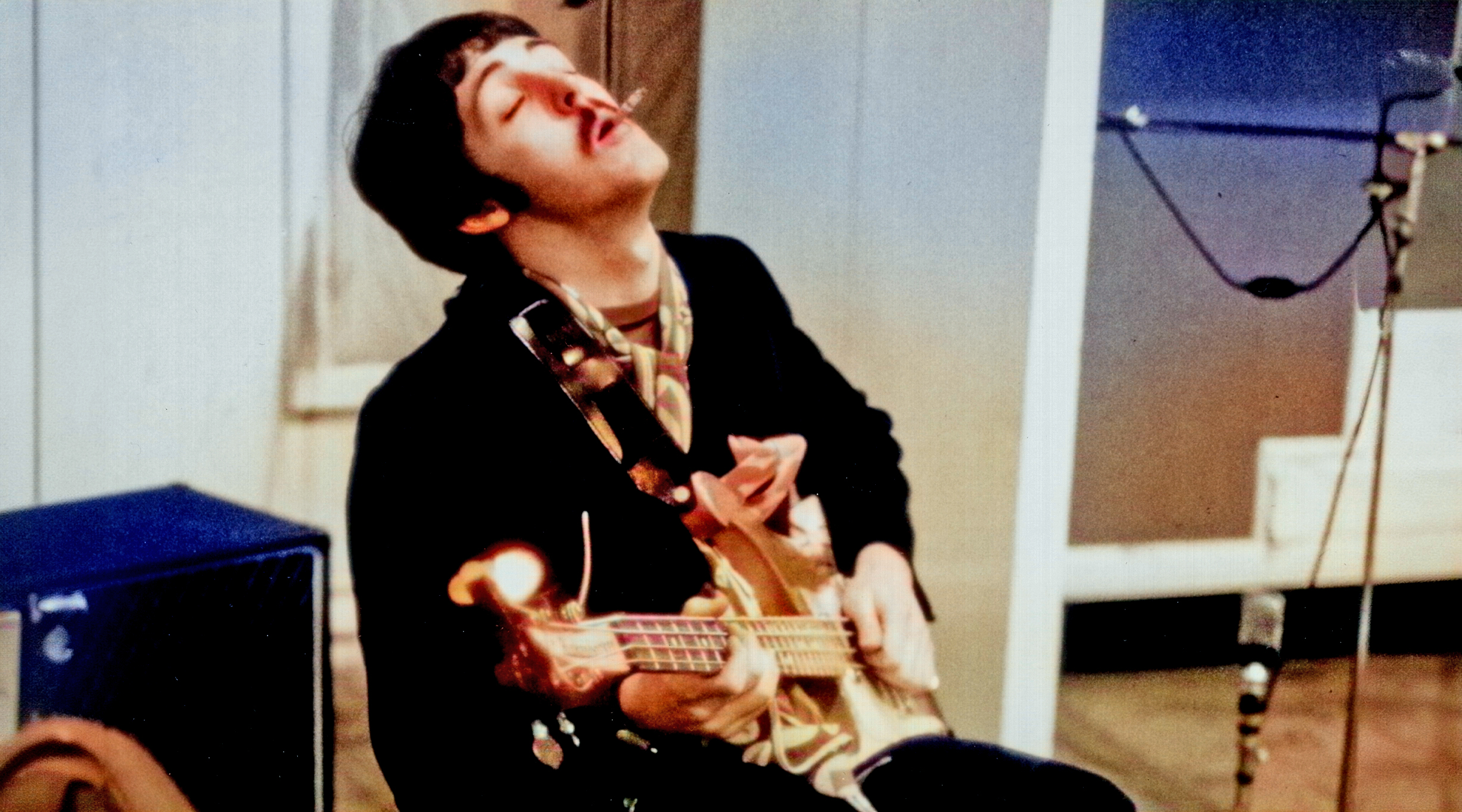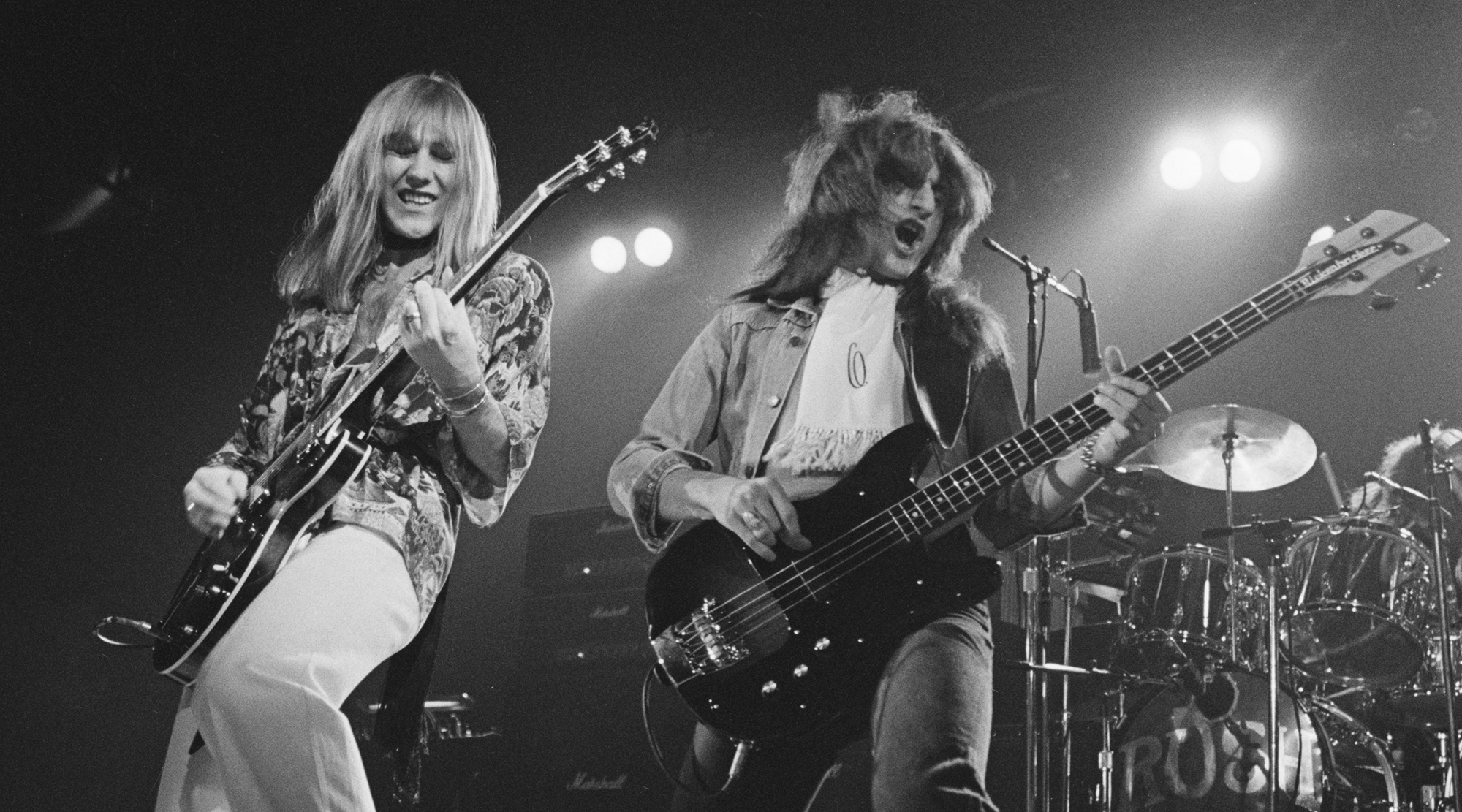“It took me quite awhile to be able to lock in with him. Robert told me I don’t hold my pick correctly”: Adrian Belew on the initial challenges of teaming up with Robert Fripp in King Crimson
The guitarist recently opened up to GP about his early struggles adapting to Fripp’s playing style, with Steve Vai facing similar challenges tackling his parts for the Beat tour

Adrian Belew has admitted it took “a lot of hours” of rehearsing with Robert Fripp to lock into his atypical approach to guitar playing.
He played alongside Robert Fripp in King Crimson for 18 years across two stints in the band and is currently celebrating that legacy with the band Beat. But speaking in the new issue of Guitar Player, Belew has opened up about the challenges he faced upon first entering the band.
“It was very difficult for me,” he admits. “I had to adapt my playing to that style, because it was not at all what I do. It took me quite awhile to be able to lock in with him. Robert told me I don’t hold my pick correctly. Which is true. I never concentrated on that. I’ve never really tried to be a fast-picking guitar player.
“There are other things about the instrument that I preferred,” he expands. “So I had to rehearse with him a lot of hours, every day. You get it to the point where we call it being ‘in the body.’ That means you can do it without really having to think about it all the time.”
Likewise, Steve Vai faced similar challenges joining Beat, which sees him stepping into Fripp’s shoes – with the prog legend’s blessing – to play the band’s trio of ‘80s albums alongside Belew, Tony Levin, and Danny Carey.
“His style is so specific and refined, it's not something I could just jump into,” Vai says. “There are a couple of things that are a little difficult. Elephant Talk is a peculiar kind of thing. Plus, this isn't a cover band, we're reinterpreting some things. My style and sound will flow into it, because it will be coming out of me.
“I'm trying my absolute best to respect every note that Robert wrote, it's just how I perform it might be a little different.”
Get The Pick Newsletter
All the latest guitar news, interviews, lessons, reviews, deals and more, direct to your inbox!
He's also mentioned how Fripp's relentlessness provided a stark early challenge, citing Frame By Frame as an example.
“The thing about Robert’s parts is not necessarily the complexity; it’s the relentlessness,” he says. “If you take something like Frame by Frame, the riff itself is hard enough – you have to have a particular picking technique in order to be able to play it. But what makes it so excruciating is the relentlessness. It doesn’t stop. It’s fast and it’s hard and incredibly difficult. [You] need for bulletproof attention. He is highly disciplined. It’s the only way you could achieve the kinds of things he achieved on the guitar.”
Despite his struggles – ones Belew can no doubt sympathize with – he’s said that Vai was the only man he had in mind when it came to putting the new band together.
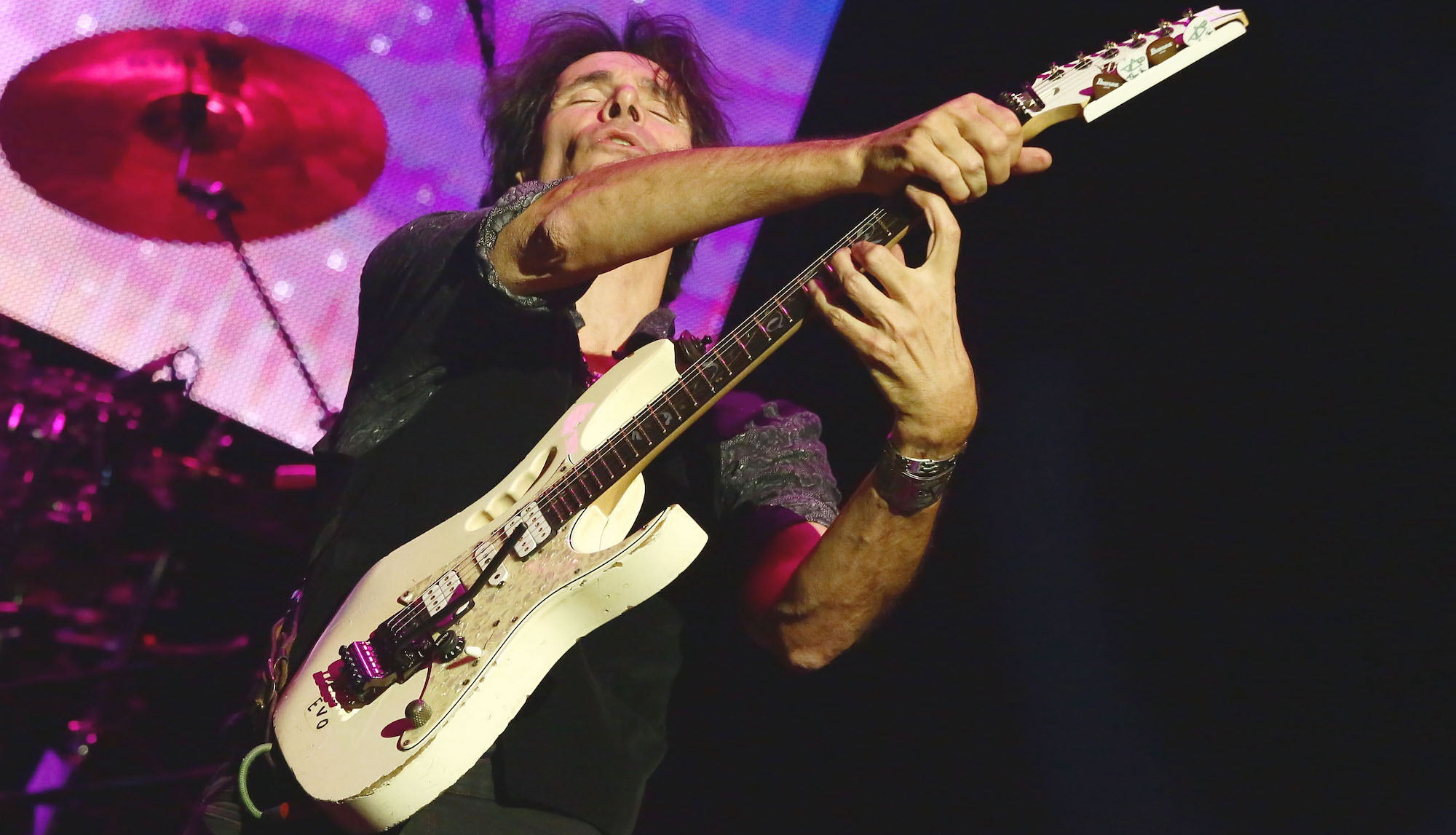
For Belew, the Beat tour has provided him an opportunity to dust off his signature Parker Fly guitar, an instrument he’s often seen playing when not wielding his Seymour Duncan-“relic’d” Fender Stratocaster.
The original Parker Fly was designed by luthier Ken Parker and pickup guru Larry Fishman in 1993, with Belew's highly spec'd signature coming 18 years later, with Belew convincing Parker to bestow the guitar with MIDI integration.
As such, his signature model comes with a 13-pin out for MIDI-synth connectivity and a 25-point knob to reconfigure the instrument's tones to mimic everything from a Fender Telecaster to a sitar.
The band kicked off the tour earlier this month, with Vai reflecting on a successful but stressful opening night by saying, “You can rehearse until you're blue in the face, but once you hit the stage and the lights go out, all bets are off.”
The latest issue of Guitar Player sees David Gilmour gracing the cover, and discussing the stories and gear behind his new solo album, Luck and Stange, inside. There are also interviews with Jethro Tull’s Ian Anderson, Doug Gillard, Luther Dickinson, and many more.
Head to Magazines Direct to pick up a copy.
A freelance writer with a penchant for music that gets weird, Phil is a regular contributor to Prog, Guitar World, and Total Guitar magazines and is especially keen on shining a light on unknown artists. Outside of the journalism realm, you can find him writing angular riffs in progressive metal band, Prognosis, in which he slings an 8-string Strandberg Boden Original, churning that low string through a variety of tunings. He's also a published author and is currently penning his debut novel which chucks fantasy, mythology and humanity into a great big melting pot.



